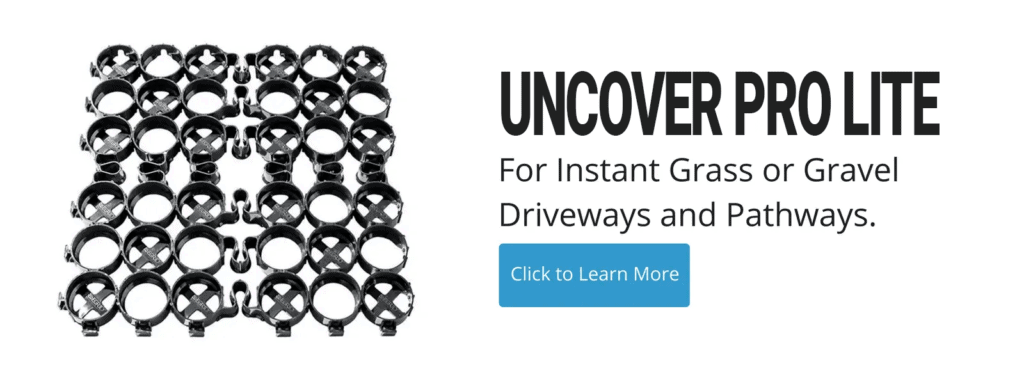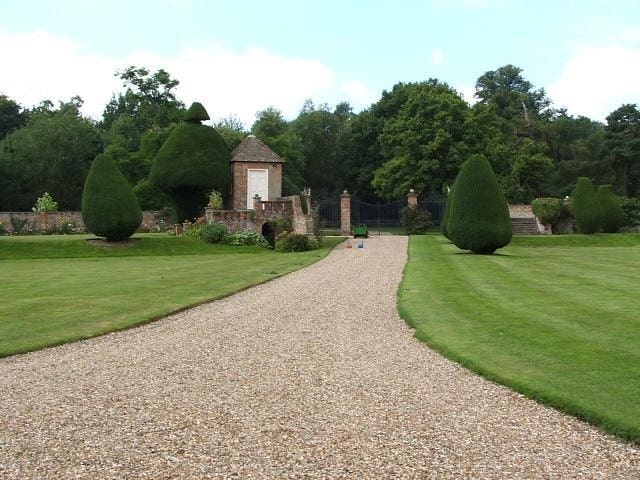
Many people think of gravel driveways as a low-cost, budget option, but the best gravels for driveways have evolved into something stylish. Now, there are multiple varieties of gravel driveways that are not only durable, but functional and decorative as well.
Some types of gravel driveways still have some vulnerabilities and potential downsides in the long-term, however there are others still that have seemingly managed to eliminate all of the usual pitfalls of using gravel for a driveway.
In case you’re interested in implementing a gravel driveway somewhere, let’s take a look at the best gravel for driveway usage and what the number one alternative to unstabilized gravel is.
How is a Conventional Gravel Driveway Built?
Most gravel driveways can be built with multiple different layers of gravel. The bottom layer of an unstabilized gravel driveway usually consists of clean stone, also known as base gravel. This gravel is typically laid at least 4 inches thick and is used to help with drainage. The stones are usually no larger than 2 inches in diameter.
Another option for the base layer of a gravel driveway is item #4. Item #4 is comprised of sand, dirt, and golf ball-sized stones. This type of gravel is available in a few different variations including recycled item # 4, which is made up of recycled stones, brick, blacktop, concrete, and rock.
There is also quarry item # 4, or crushed limestone, gray item # 4 which appears dark grey in color, and crushed bluestone item #4. Crushed bluestone item #4 is usually found in municipal driveways, though.
The middle layer of a gravel driveway features stones closer to golf ball size, with #57 stone being the prominent type of gravel. Otherwise known simply as crushed gravel, #57 stone also helps promote drainage.
Conventional Surface Gravels for Driveaway
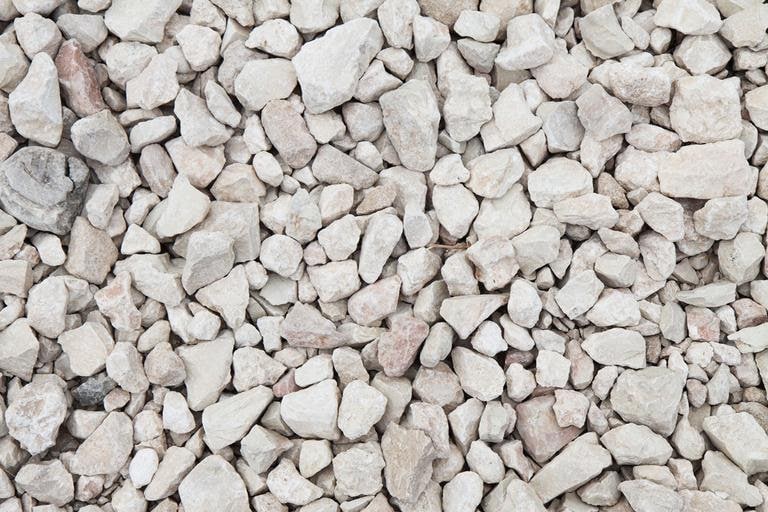
There isn’t a lot of variety for the bottom layers of a gravel driveway, however, there are more options when it comes to finding the best gravel for driveway surfaces. Among the other options are crushed stone #411, quarry process, pea gravel, jersey shore gravel, marble chips, and river rock. These are the best options for driveway surfaces gravel, because they are small stones combined with rock dust, which makes a more solid driving surface.
1. Crushed Stone #411
It is crushed up #57 stone combined with rock dust. This mixture is able to handle moderate traffic from heavy vehicles.
2. Quarry Process
It is also called “crusher run” and works well for the surface of both driveways and walkways. It’s made from stone dust fines and crushed stone.
The stone dust will settle and become compact to create a semisolid surface that is smooth. It is important that you know that this type of surface gravel needs to be sloped towards the sides of your driveway for better drainage.
3. Pea Gravel
Pea gravel is popular gravel for driveway aesthetics. It’s made up of round, small stones that can come in many different colors. This type of gravel will easily migrate and spread under the weight of vehicles, though, and needs to be stabilized for long-term, maintenance-free usage. [Editors note: pea gravel is not recommended as a fill for permeable pavers]
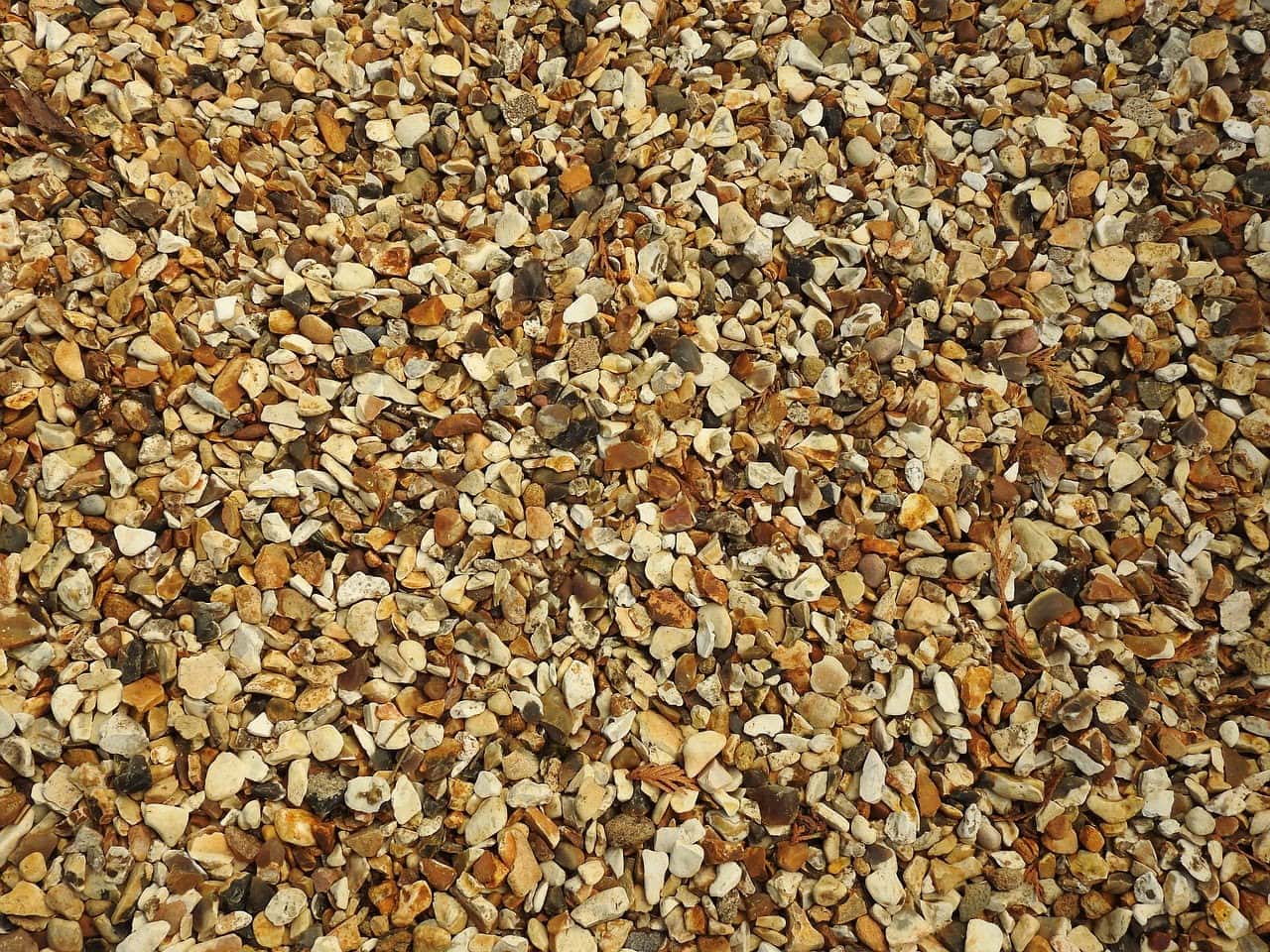
4. Jersey Shore Gravel
It is made of yellow, tan, white, gold, and brownstones and looks quite a bit like sand. It’s similar to pea gravel since it needs borders or stabilizing pavers to prevent it from spreading.
5. Marble Chips
Marble chips are white and they sparkle in the sunlight. They typically cost more than other gravel types but are another favorite when it comes to being the best gravel for driveway aesthetic appeal. This type of gravel also needs a border or stabilization to prevent it from spreading, migrating, and washing away.
6. Blackstar or Blacktrap Rock
A very attractive dark gray gravel, this is an excellent choice as it is angular and locks together. When combined with stabilizing grid paving system, this provides a super durable and beautiful driveway.
A Better Alternative to a Typical Gravel Driveways
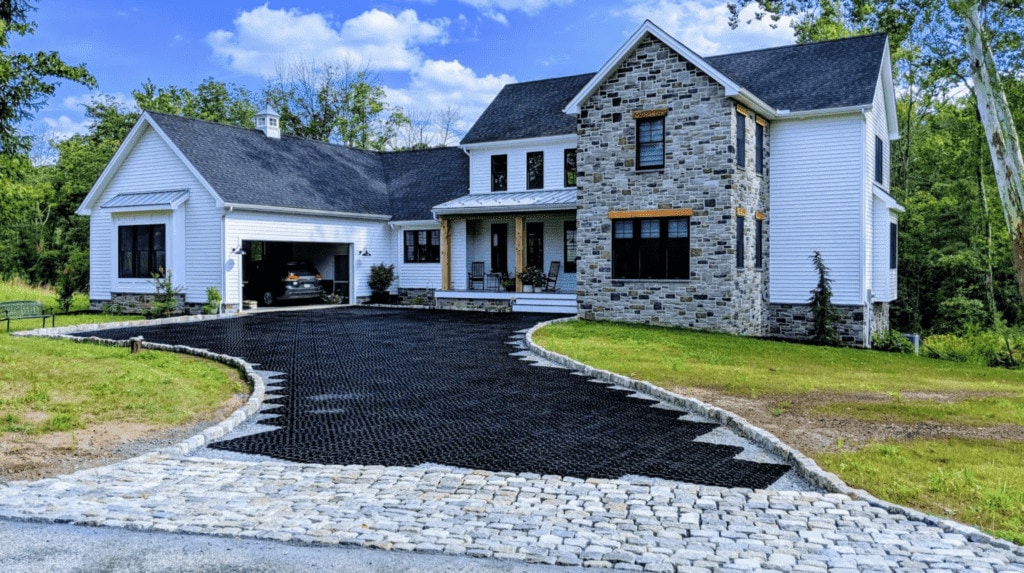
Some of the aforementioned gravel types require stabilization, but the best way to construct any gravel driveway is by using TRUEGRID permeable pavers to lock in your gravel.
TRUEGRID PRO LITE and PRO PLUS stabilizing pavers simply require excavation, geotextile fabric, a gravel base layer, the pavers (PRO PLUS or PRO LITE) and fill gravel.
After excavation, the base layer is placed on a piece of fabric of the excavated area where you want your driveway that provides drainage for water and other liquids. The base layer may be compacted in 2 to 4″ lifts and the area should be leveled.
TRUEGRID permeable pavers are snapped in place over the surface. Some cutting and repositioning of the pavers may be needed.
Next, your surface gravel/stone of choice is poured into the pavers level to the top. This weighs the pavers down and locks them securely into place. Suggested gravel infill is a hard, sharp/angular, uniform size — 1/2″, 5/8″ or 3/4″ for PRO PLUS — clean stone.
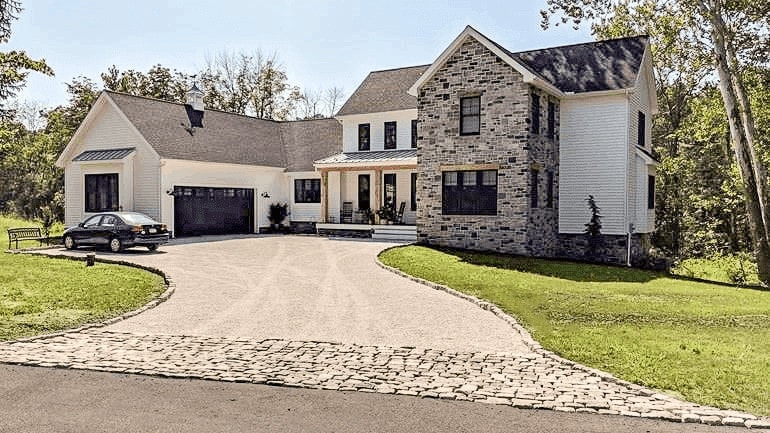
The main benefit of using TRUEGRID pavers to build a gravel driveway is that they will keep your gravel in place, eliminating the need for almost any maintenance during the course of your driveway’s lifetime.
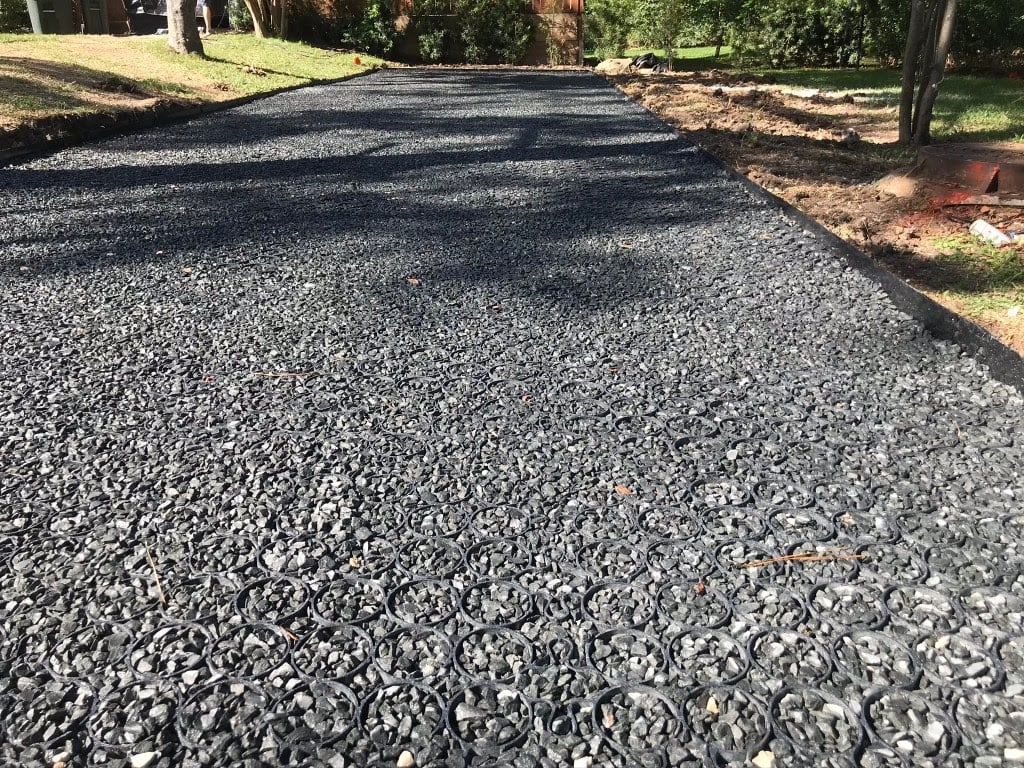
A properly installed and maintained TRUEGRID gravel driveway is durable enough to handle all types of typical residential traffic and will last 25 years or more without cracking or breaking down in the sun, rain, or other types of weather like asphalt does. Choosing the best gravel for driveway usage is only part of the equation.
If you want to build your gravel driveway the maintenance-free way, get in touch with the pavement professionals at TRUEGRID today for a quote.
